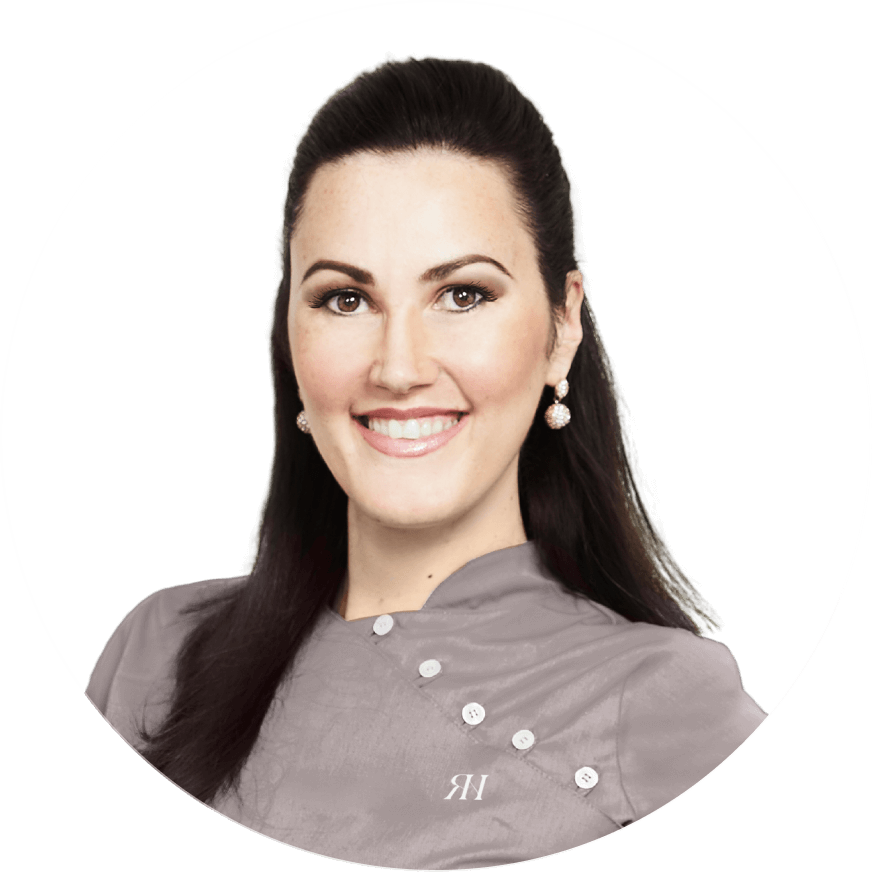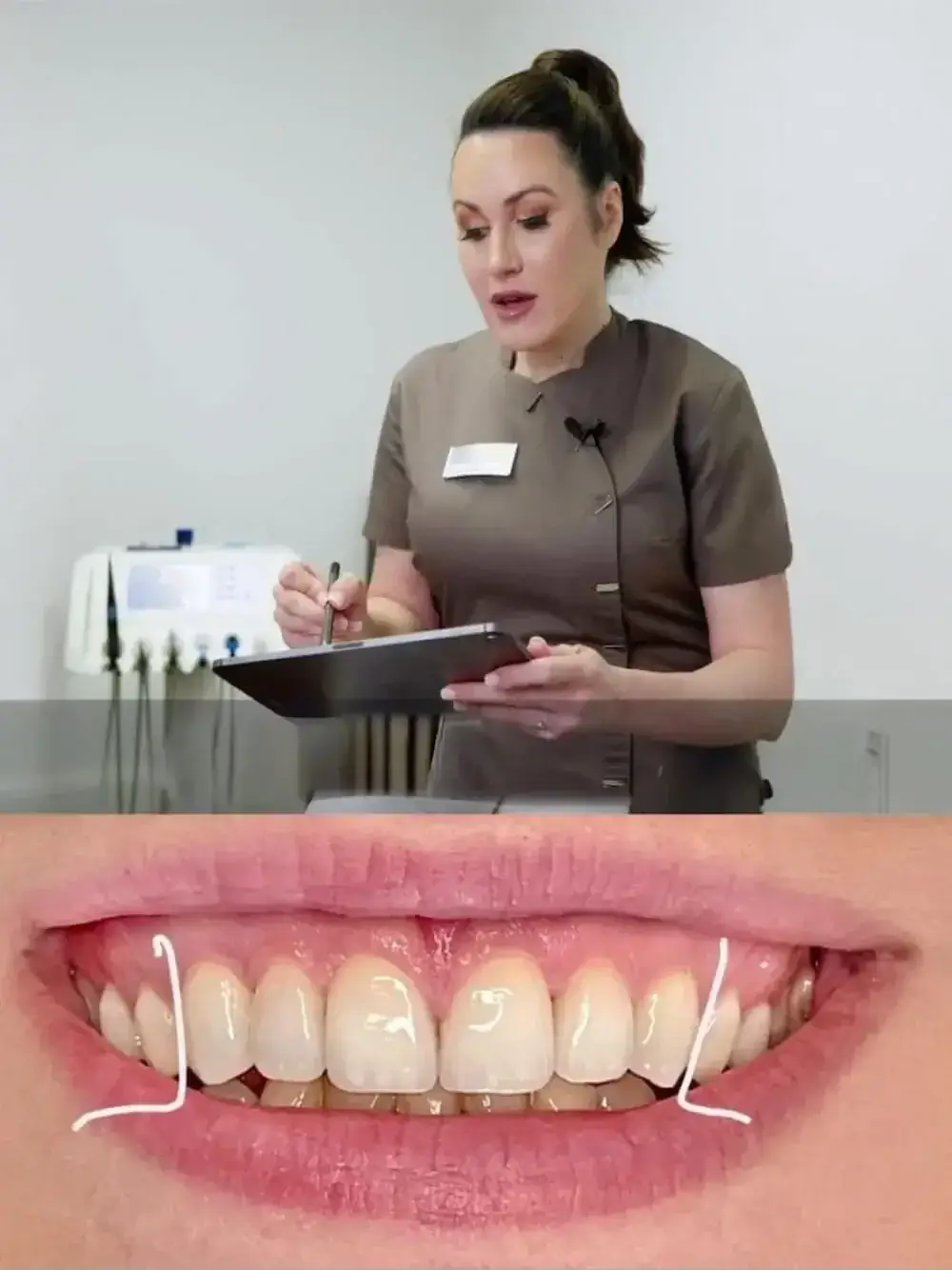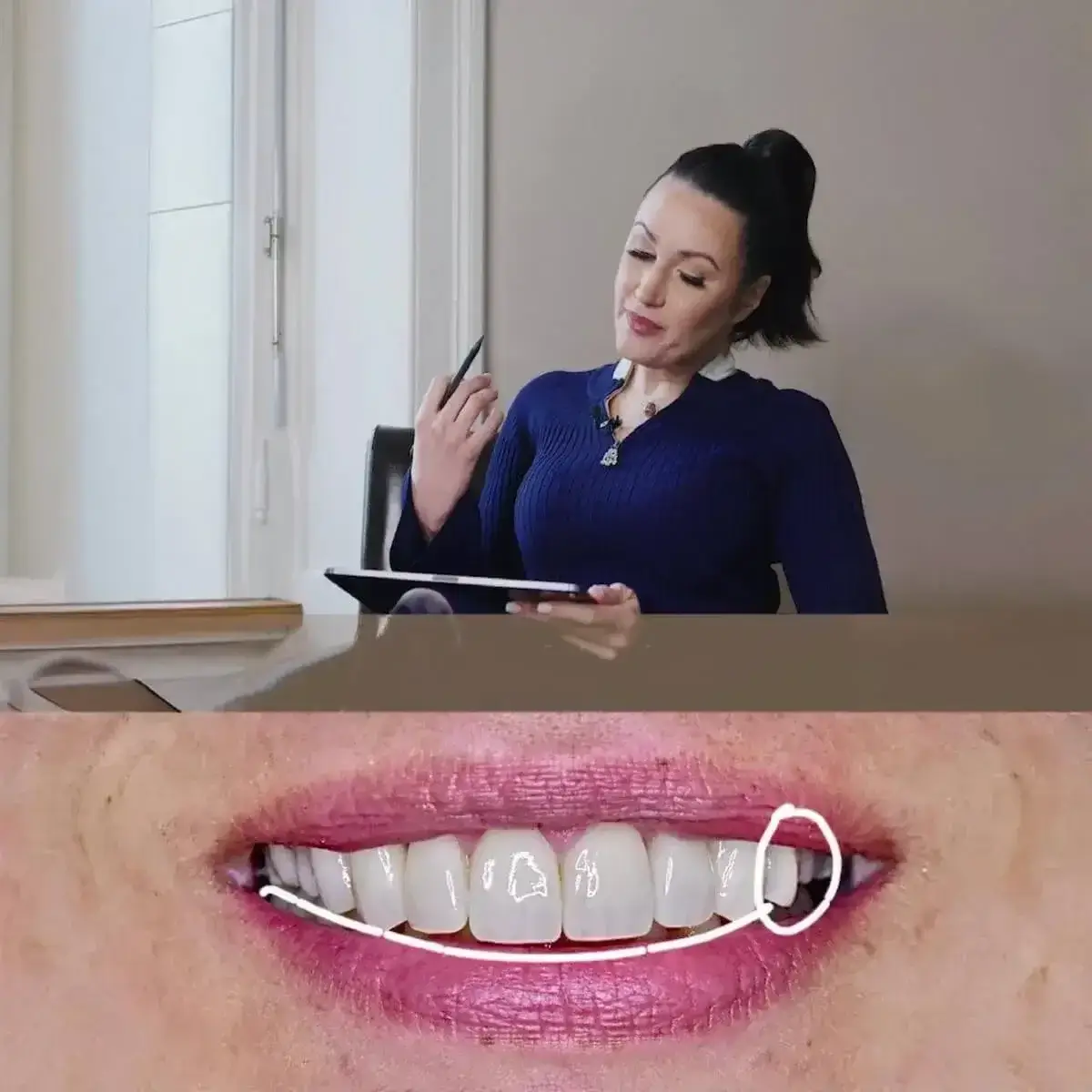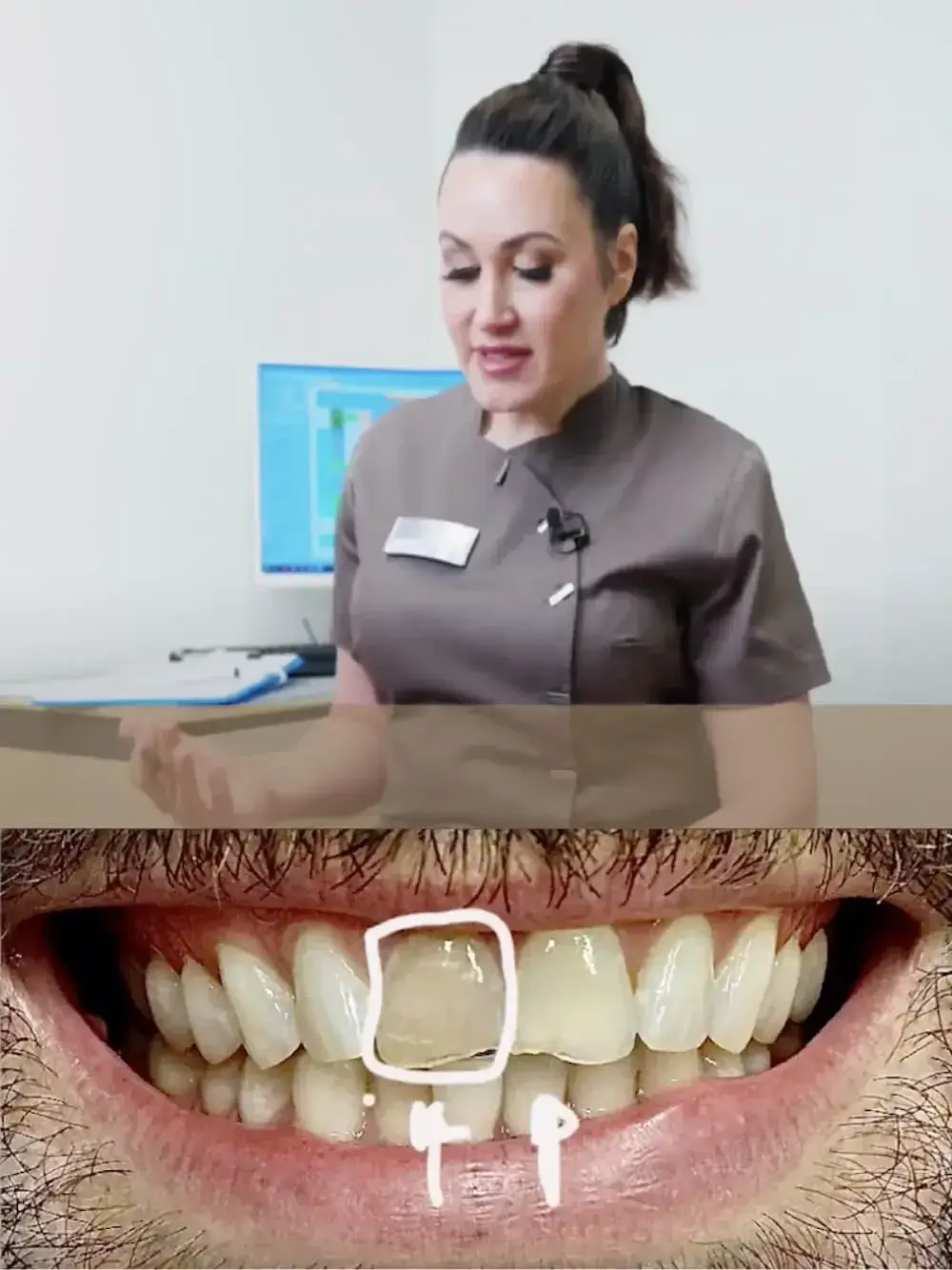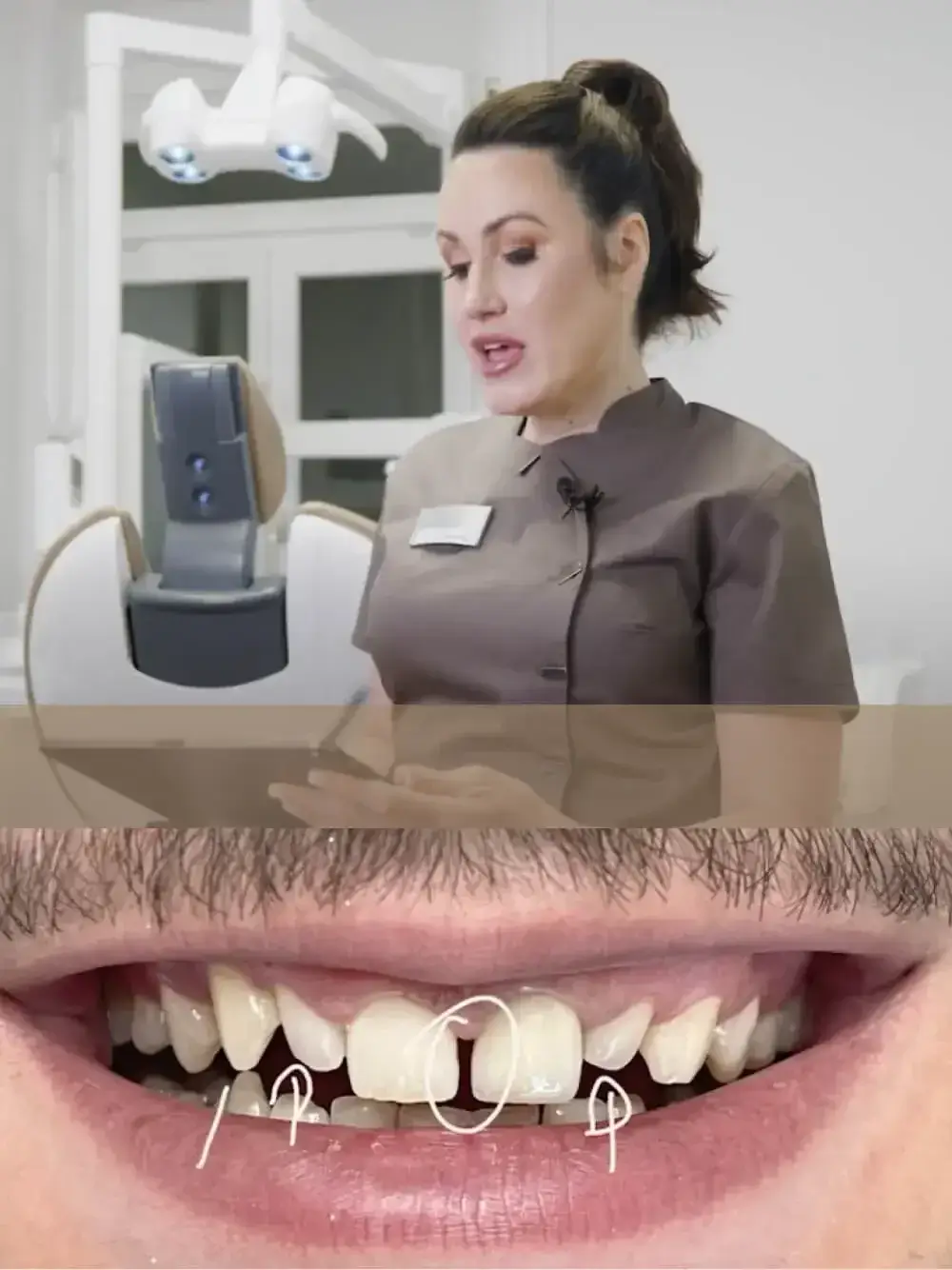Veneers
Veneers are very thin ceramic-coated veneers. They are used for aesthetic corrections to teeth and are bonded on.
We all want a naturally beautiful smile. But often slight tooth misalignments or discoloration stand in the way. This is where veneers come in - they offer an excellent opportunity to optimize the appearance of our teeth and give us a naturally beautiful smile.
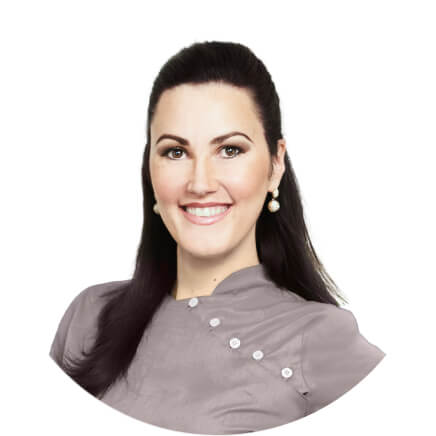
My veneers are individually layered by hand with ceramic powder to imitate the natural appearance of the teeth. I have been working in aesthetic dentistry for over 15 years - and I am still passionate about it every day.
Dr. Dr. Rosanna Himmelfarb
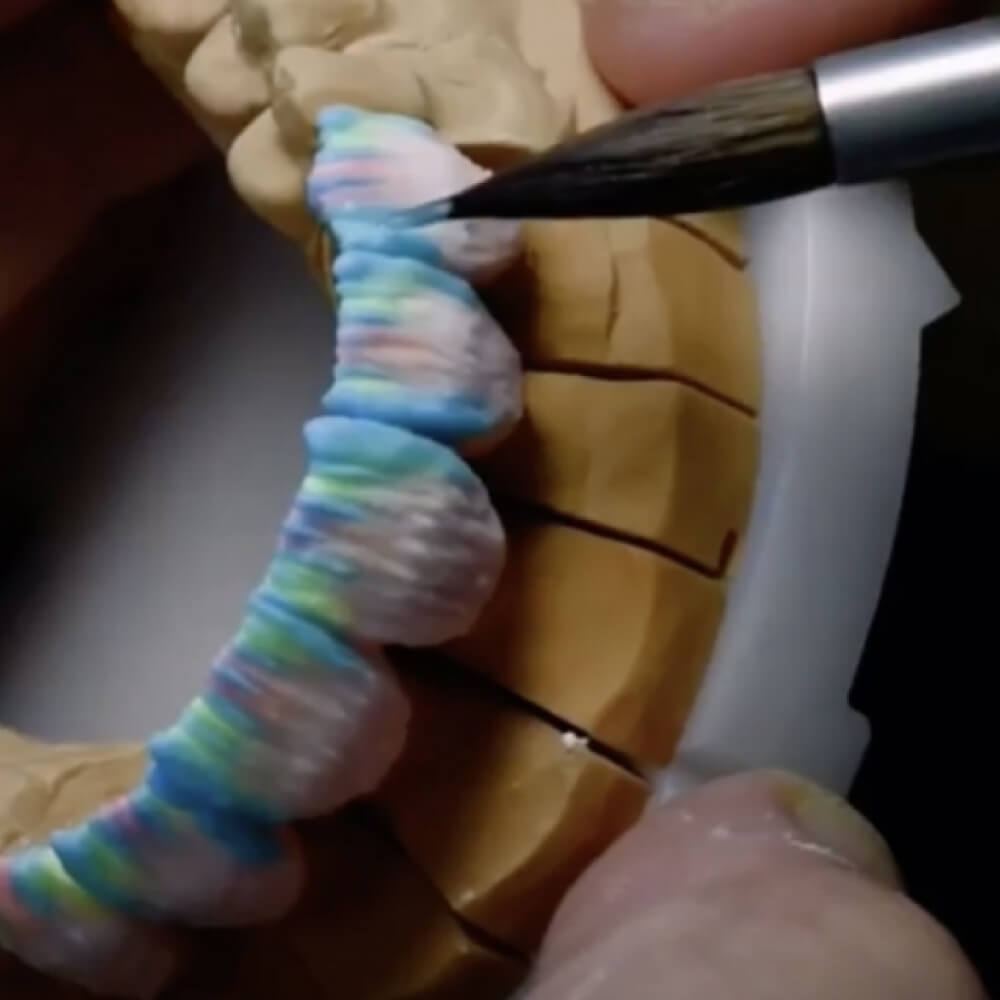

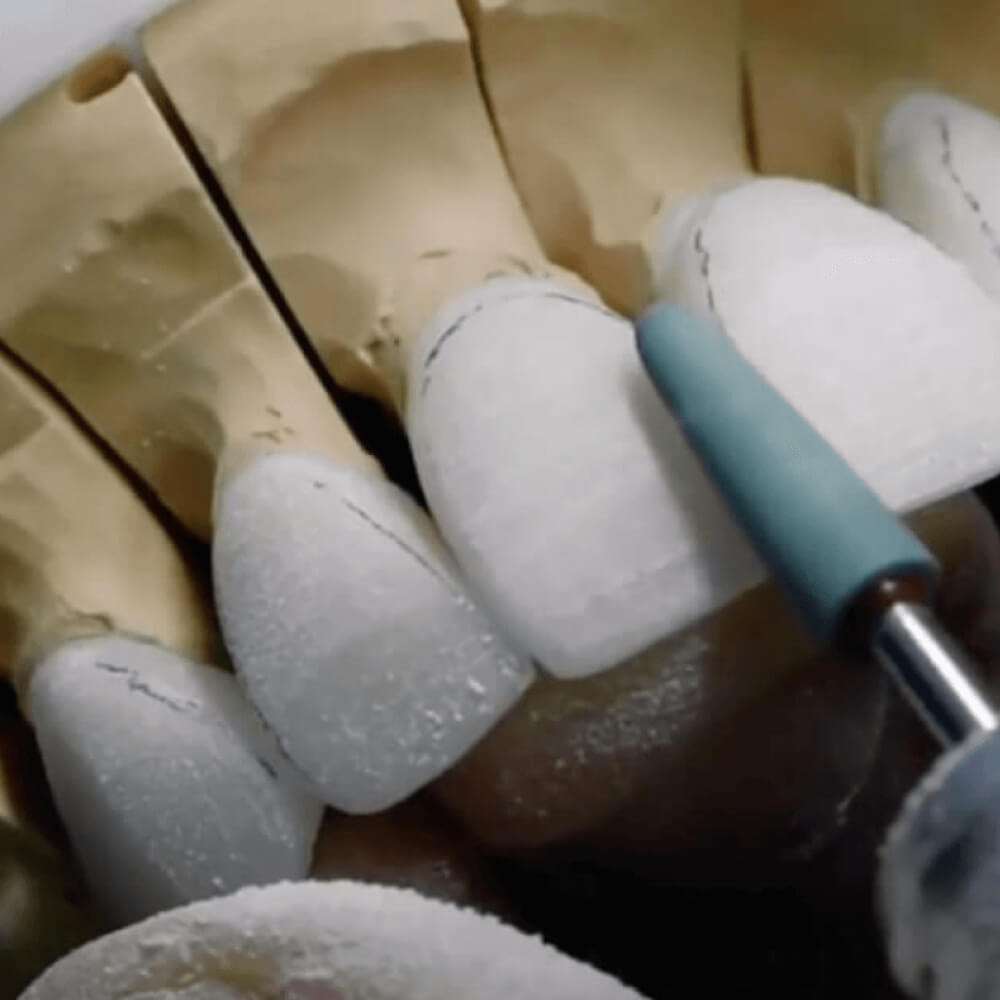
What are veneers?
Our veneers from Lucerne are thin, up to 0.3 mm thick, ceramic-layered veneers that are used in modern dentistry. Each veneer is individually handcrafted for you and then irreversibly bonded to the respective tooth to achieve a naturally beautiful smile. Our hand-layered veneers blend unobtrusively into the appearance of your teeth.
Possible applications of veneers:
- malocclusion
- tooth discoloration
- gaps between teeth
- tooth fractures
- Adjustments to the shape of the tooth (e.g. width or length)
- defects in the tooth enamel
- Aged and worn teeth
Types of veneers
There are basically four main types of veneers, which differ mainly in terms of material, manufacturing method and application:
- Conventional (ceramic) veneers are the most commonly used variants. They are made of high-quality ceramic and require a slight removal of tooth substance in order to securely attach the veneers.
- Non-prep veneers, including Lumineersare particularly thin and often require no or only minimal preparation of the tooth, so that the natural tooth hardly needs to be ground down, if at all.
- Veneers-to-go (instant veneers) are inexpensive, non-customized standard plates that are immediately available. They do not fit perfectly and can be potentially damaging to teeth in the long term.
- Composite veneers (plastic veneers) are made of dental plastic and are applied directly by the dentist - similar to a filling. They are cheaper, but also less durable than ceramic veneers.
Things to Know About Veneers
Advantages of our veneers
- minimally invasive
- Long-lasting results
- Fast aesthetic improvement of teeth
- Quality through handcraft
Our costs
The cost of veneers depends on various factors. The exact price is determined by your individual dental situation and the amount of work required. Please contact us for your personal advice and an individual cost estimate.
Procedure for our veneers treatment in Lucerne
Procedure of a veneers treatment
1
Personal
Consultation
Consultation
Together we will discuss your needs and wishes, which will serve as the basis for a tailor-made treatment plan.
2
Analysis of the
initial situation
initial situation
Through our careful examination, x-rays, photographs and other diagnostic methods, we accurately record the current condition of your teeth, gums and jaw.
3
Visualization
and planning
and planning
Using modern 3D models or the TryIn method, we can visualize your wishes and ideas together.
4
Individual
implementation
implementation
Each step is carried out with the utmost precision and care. The ceramic shells are individually layered and attached by hand. Our method imitates the naturalness of a tooth and brings back your naturally beautiful smile.
5
Follow-up
and accompaniment
and accompaniment
Follow-up checks are very important so that you are satisfied with the result in the long term and can enjoy your perfect smile. We recommend a professional teeth cleaning every six months and an annual dental check-up.
High-quality craftsmanship
There are two ways to make veneers: hand-layered veneers or the machine-made method, which is less precise and less aesthetic as it does not reproduce the natural appearance of a tooth.
At our clinic, veneers are manufactured in an artistic manner with attention to detail. An experienced Swiss dental technician carries out a lot of personal manual work to achieve the highest aesthetic appearance of our veneers. This makes it possible to perfectly imitate the natural translucence and surface structure of the different shades of a tooth.
Dr. Dr. Himmelfarb works exclusively with hand-layered and therefore highly individual veneers.
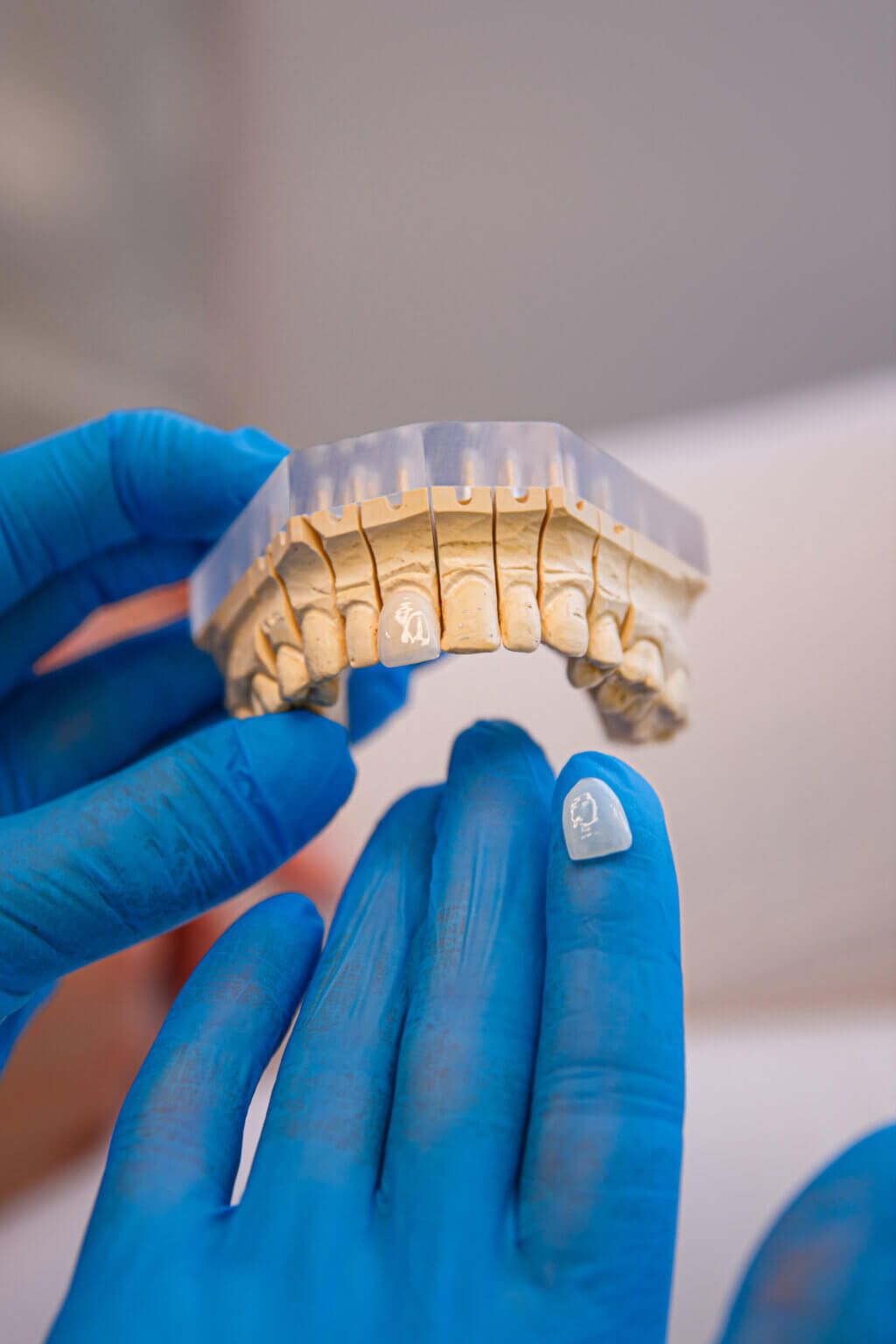
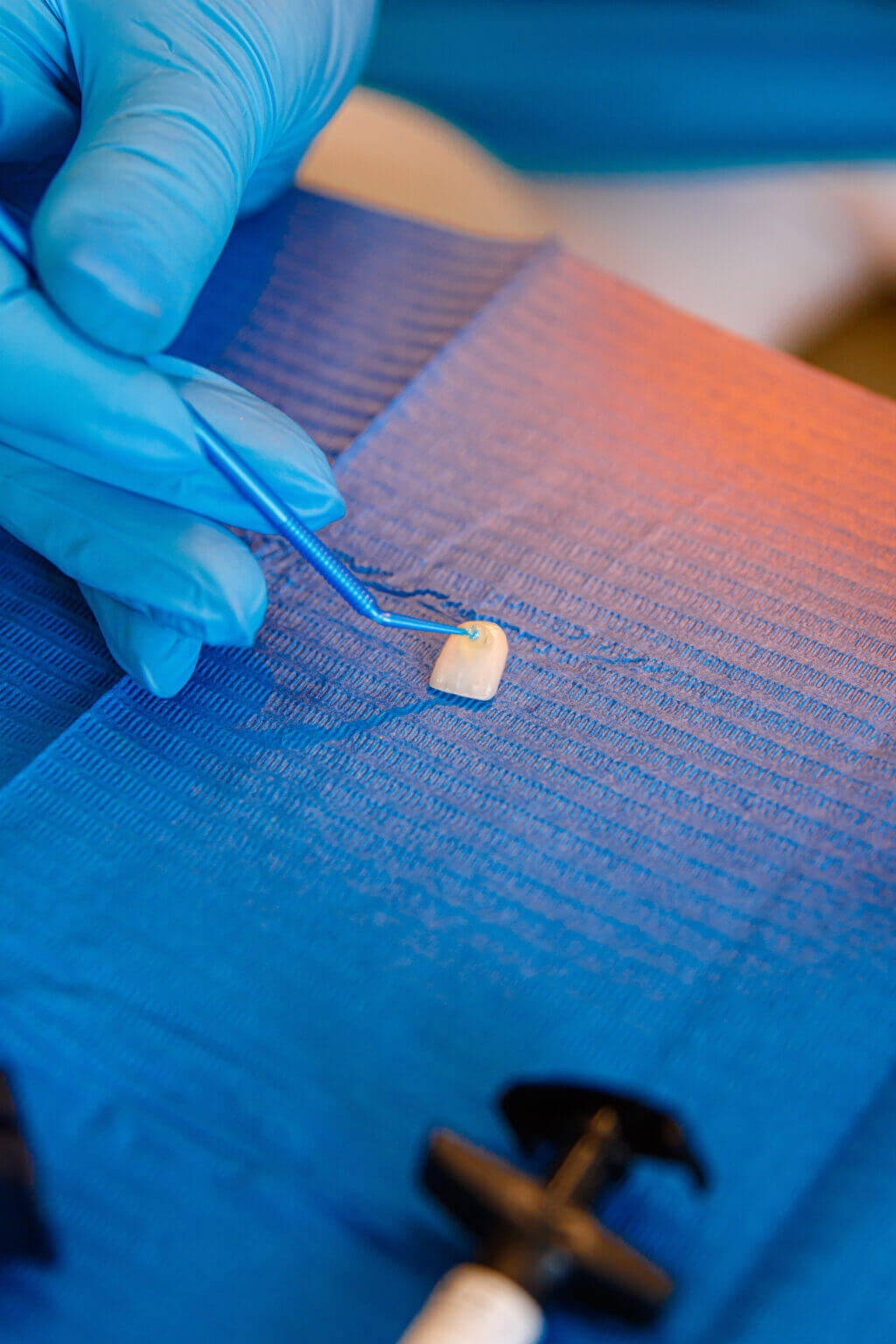

Hand-layered vs. Machine-made
Our hand-layered veneers
- Natural Aesthetics
- Highest quality
- Indistinguishable from natural teeth
- Precise handwork
- longevity
- Biologically very well tolerated
- Does not harm the teeth
- Great color adaptability
Machine-produced veneers
- No natural aesthetics
- Long-term tooth damage
- Poorer durability
- Limited color customization options
Veneers before and after pictures
Frequently Asked Questions
Do hand-layered veneers feel different than your own teeth?
No, because they are still your own teeth, only covered with ceramic on the front surface. Ceramic has similar physical properties to natural tooth enamel. This means that not only the optical characteristics, but also the surface texture, thermal conductivity and thermal expansion behavior correspond to the natural tooth. The material is therefore not perceived as foreign, as long as the veneers are hand-layered.
How long do veneers last?
Veneers have a very long lifespan, often up to 20 to 30 years. Daily thorough oral hygiene and annual dental check-ups are crucial for their longevity. In addition, professional dental cleaning every six months is recommended. In most cases, the main reason for replacement is not defects in the veneer, but diseases of the underlying natural tooth.
How many veneers do you need?
How many veneers are necessary for a perfect smile depends on the individual situation of the patient. Decisive factors are the position, shape and size of the teeth, the alignment of the dental arch and the condition of the tooth surface. In addition, the shape of the face, the proportions, the natural smile and the personal wishes of the patient influence the recommendation for the number of veneers.
How much do veneers cost?
Veneers are an investment in yourself. The price varies depending on quality and material. Quality has its price, and a first-class, tailor-made aesthetic treatment will usually be more expensive than a standard solution. Contact us for more information.
How do you care for veneers?
Thorough oral hygiene is very important for both natural teeth and veneers. No special care is required for veneers; a toothbrush, dental floss and mouthwash are sufficient. In order to maintain your veneers in the long term, in addition to good oral hygiene, regular dental check-ups and professional teeth cleaning with Dr. Dr. Himmelfarb are necessary.
Was, wenn ich Angstpatient bin?
Wenn Sie sich vor zahnärztlichen Eingriffen fürchten, haben wir zusätzliche Lösungen, die Ihnen helfen können, den Komfort zu erhöhen und Ihre Ängste zu verringern. Falls erwünscht, können wir die Behandlung unter Vollnarkose oder Hypnose durchführen. Diese Optionen sorgen dafür, dass die Behandlung entspannter und stressfreier verläuft.
Wie schmerzhaft ist eine Veneers-Behandlung?
Die Schmerzen bei einer Behandlung können je nach Aufwand und Fehlstellung der Zähne variieren.
Bei einer starken Zahnfehlstellung, muss man allenfalls mehr von der Zahnoberfläche abschleifen, was dazu führen kann, dass die Zähne bis zum Einsetzen der Veneers empfindlicher sind. Bei einer geraden Zahnstellung muss wenig bis gar nichts abgeschliffen werden.
Nach der Behandlung kann es zu leichten Empfindlichkeiten beim Tragen der Provisorien kommen, die jedoch meist schnell abklingen, sobald die definitiven Veneers eingesetzt werden.
Welche Vorteile bieten handgeschichtete Keramik Veneers?
Unsere Veneers bieten diverseVorteile. Der grösste Vorteil ist, dass unsere Veneers mit viel Erfahrung und mit echter Handarbeit gemacht werden. Dieses Vorgehen ermöglicht uns eine präzise Anpassung an die individuelle Zahnfarbe und -form des Patienten, wodurch ein äusserst natürliches und ästhetisch ansprechendes Ergebnis erzielt wird.
Weiter sind unsere handgeschichteten Keramikveneers qualitativ sehr hochwertig, langlebig und zudem widerstandsfähig gegen Verfärbungen und Abnutzung.
What happens to the teeth under the veneers?
If veneers are fitted professionally and you have regular check-ups and are meticulous about hygiene, the teeth underneath will remain strong, protected and caries-free.
CLIENT STORIES
Behind every smile a story...
Case Reviews
Behind every case study a lot of experience...
The first step to a naturally beautiful smile
I look forward to getting to know you in a personal consultation and using my knowledge and experience to help you achieve a naturally beautiful smile.
